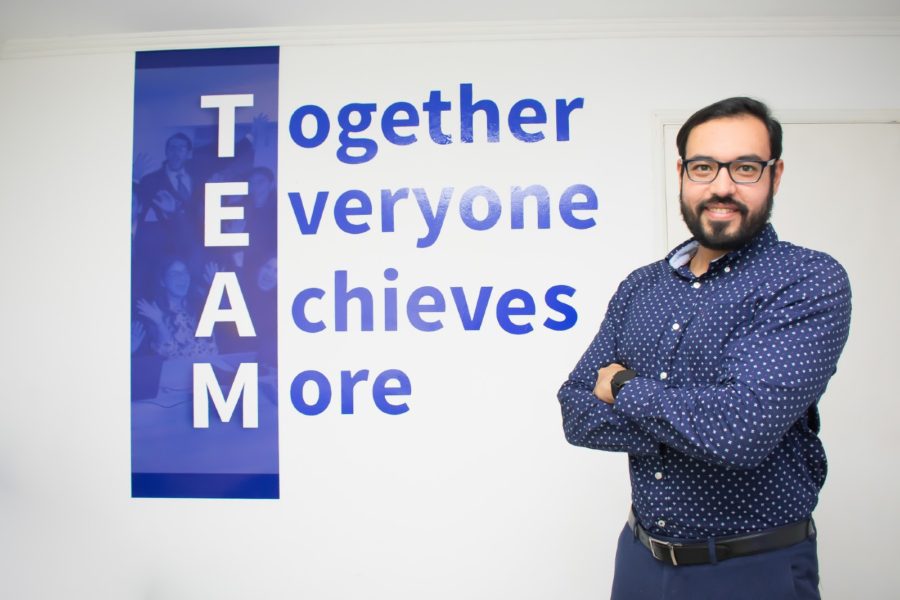Are you tired of the traditional classroom setting? Do you crave the freedom to learn on your terms? Are you looking for a way to enhance your workplace’s learning experience? Independent learning might be the perfect solution! This self-directed approach to education allows people to take ownership of their development, leading to more engaged and motivated employees.
The blessings of this practice for students are endless, from developing self-discipline to improving critical thinking skills. So why not try it out and see where your journey takes you?
The Challenges of Implementing Independent Learning
This is a highly beneficial approach to education that allows people to take control of their learning process. However, implementing it comes with its own set of challenges. One of the biggest challenges is building a culture that values self-directed learning.
This approach redirects the focus from teacher-led instruction to a more student-centered approach, where successful independent learners take responsibility for their learning.
Another challenge is ensuring that learners have the necessary resources and support to engage in this practice, including access to technology and training on how to use it effectively.
For example, a company implementing independent learning for employee development could provide online courses and mentorship programs to support their employees’ growth. Overcoming these challenges can lead to a more empowered and engaged workforce, resulting in higher job satisfaction and productivity.
Providing Resources and Support
Being an independent learner has become a skill for employees looking to stay competitive. For this reason, providing the necessary resources and support to nurture your knowledge is crucial for organizations.
These resources can include online courses, workshops, mentorship programs, and access to learning materials. Besides, a culture of continuous learning can be encouraged by establishing regular feedback mechanisms, offering career development opportunities, and recognizing employees’ achievements.

When organizations supply independent learners with the right tools and support, they unleash a workforce that is continually growing, adapting, and innovating.
This support leads to better outcomes, higher performance, and a culture of excellence that sets the organization apart from the crowd.
Developing independent learners means investing in the future success of your organization. When empowering people to take control of their learning, you’re paving the way for long-term growth and development.
Setting Clear Expectations
Clear expectations are a critical component of independent learning, both for the learner and the organization. To succeed as independent learners, people must understand the expectations, available resources, and evaluation methods.
Organizations must deliver guidelines about learning outcomes, timelines, and evaluation criteria. Independent learners can maintain motivation and focus by setting specific, measurable, and attainable learning goals.
This process helps them to gain a clear insight into their learning objectives and track their progress toward success.
This approach fosters a culture of responsibility and accountability, empowering learners to become the main characters in their growth and development. In turn, organizations can benefit from having employees who are highly motivated, engaged, and skilled, leading to increased productivity and overall success.
Fostering a Culture of Learning
A workplace that supports employees in pursuing knowledge and skills and values learning as an ongoing and essential component of professional development creates a culture of growth and innovation.
By investing in employee learning, companies can attract and retain top talent and stay ahead in today’s competitive marketplace.
By fostering a learning culture for independent learners, organizations can create an environment where they reward curiosity, and innovation is the norm.
Providing resources and support, recognizing and rewarding achievements, and promoting collaboration and knowledge about this culture. So, let’s foster a culture of learning where everyone can grow and thrive. As a result, employees are more engaged and motivated, leading to increased productivity, innovation, and business success.
Encouraging Goal Setting and Reflection
Encouraging independent learners to set goals and reflect on their progress is a strategy for achieving ongoing success. Reflection also plays a critical role in the learning process by helping learners identify what worked well, what didn’t, and what they can do differently next time.
Organizations can encourage goal setting and reflection by providing tools and resources for tracking progress, setting milestones, and reflecting on successes and challenges.
Managers can also promote a growth mindset by giving constructive feedback and identifying employees’ progress toward their goals. By encouraging goal setting and reflection, organizations can empower employees to take control of their learning journey and achieve ongoing success.
Incorporating Independent Learning into Performance Reviews

As organizations continue to recognize the importance of it, it’s becoming increasingly common to incorporate this learning type into performance reviews.
Incorporating this into performance evaluations is a powerful way for organizations to assess employee skill sets and dedication to growth.
By making it an integral part of performance reviews, companies can encourage employees to take ownership of their professional development and recognize their efforts to acquire new skills and knowledge.
For example, a marketing professional who takes an online course in social media marketing and applies that knowledge to a successful ad campaign can showcase their achievements during a performance review. A leader can provide feedback on their learning journey and suggest further development opportunities.
An employee in a marketing role may use independent learning to develop expertise in search engine optimization (SEO) techniques. By integrating this skill into their performance evaluation, both self and peer assessment, the employee can demonstrate their proficiency in this area and how it has contributed to the success of the organization’s marketing campaigns.
This approach can also help employees feel more engaged in their learning and motivated to chase new opportunities. Organizations can promote autonomous learning in performance reviews by setting goals, providing resources, and recognizing achievements.
By prioritizing learning and making it an integral part of performance evaluations, organizations can foster a culture of ongoing learning and development, setting themselves and their employees up for long-term success.
Overcoming Resistance to Change
When organizations begin to recognize the benefits of learning independently, they may encounter resistance from workers who feel accustomed to traditional training methods. This change may cause resistance from a lack of understanding or a fear of change.
However, by communicating the advantages of learning, such as greater flexibility, autonomy, and personalization, organizations can help employees see the value in this approach.
One way to transmit the advantages of learning in this way is by sharing success stories and examples of employees who have excelled through this approach. An organization may highlight the success of an employee who took the initiative to learn a new software program through an online course.
The employee’s newfound skills not only improved their job performance but also led to a more efficient and streamlined process within the organization.
The organization can inspire a culture of self-teaching and continuous improvement by sharing this story and offering similar opportunities to other employees.
To feel more confident in your ability to learn independently, it’s essential that your organization effectively communicates its benefits and provides you with the necessary support to develop independent will.
It includes having a mentor or coach who can offer guidance, feedback, and encouragement throughout your learning journey.
Overcoming resistance to change can be challenging, but with the right approach, organizations can help employees embrace independent learning and develop the skills they need to succeed.
Balancing Independent Learning with Collaboration
Through collaboration, you can benefit from the expertise of your peers and gain fresh perspectives on the subject matter you’re studying. Collaborating with others can also help you develop soft skills such as communication, problem-solving, and teamwork.
To strike the right balance, organizations can encourage employees to collaborate on projects and assignments while allowing them to pursue individual learning goals.
For example, employees can work together to complete a project, but each person can also seek research on a related topic. So, employees can learn from each other while also developing skills that are important to them.
To support collaboration, communities can provide technology tools and create spaces conducive to group work. By finding the right balance between independent learning and collaboration, organizations can help employees develop a broad range of skills that will benefit them and the organization.
Measuring the Success of Independent Learning Programs
Learning independently can provide individuals with the opportunity to take control of their learning journey, but it’s essential to assess whether it’s helping individuals achieve their goals and leading to the desired outcomes. Organizations can measure independent learning success programs by setting clear objectives and tracking progress over time.
By measuring the outcomes of learning programs, organizations can ensure that they provide practical learning possibilities that benefit both the employees and the organization. Another way to measure success is by analyzing the independent learning programs’ return on investment (ROI). By doing so, organizations can determine if the program’s benefits outweigh the costs.
Empowering to Thrive
Empowering your team to thrive through independent learning is a powerful tool to push your business to success. By allowing your team members to take charge of their learning goals, you can help them develop the skills and knowledge they need to excel in their roles, boost their confidence, and enhance their overall job satisfaction.

Through self-teaching, team members can take ownership of their professional development and set their own goals. This can lead to increased engagement and productivity, as well as a deeper understanding and greater sense of purpose in their work.
Additionally, independent learning can help your team stay up-to-date with industry trends and best approaches, giving your business a competitive edge.
In the end, empowering your team to thrive through this way of learning is not just good for your business. It is a way to invest in your team members’ professional growth and development. By fostering a continuous learning culture and improvement, you can help your team members achieve their full potential and create a strong foundation for future success.
Why not take the first step today? Discuss the importance of learning with your team and brainstorm ways to encourage it. Provide resources for teachers and opportunities for learning, and be sure to offer regular feedback and recognition for their efforts.
Let’s empower your team to thrive through independent learning and pave the way for a brighter future for our businesses and team members.
See more articles by Carla Fattal





